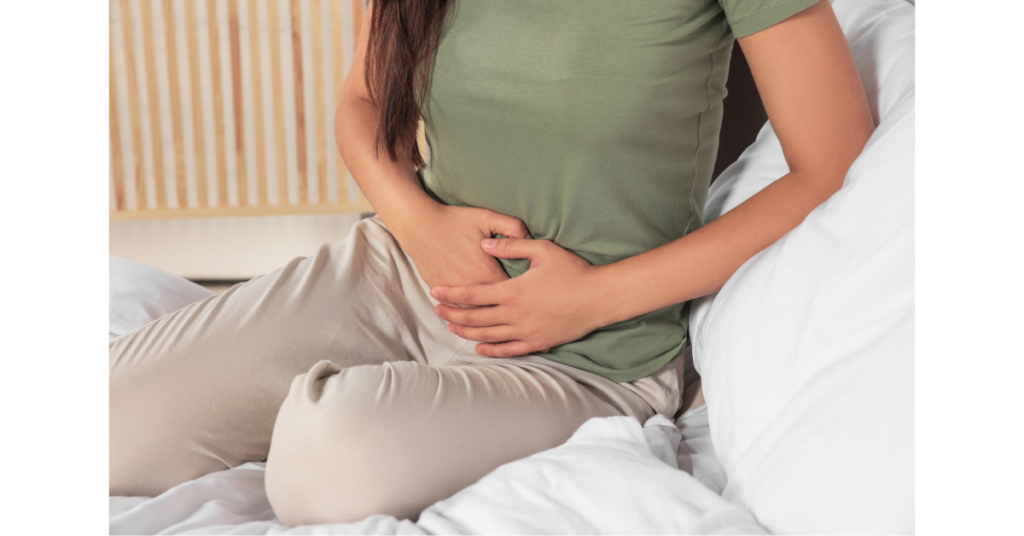Pre-Menstrual Syndrome (PMS) – Natural Health Advice that Really Works
In the run up to their menstrual period some women experience such a change in hormone levels that they experience an array of symptoms that can seriously affect their life.
Each case of PMS is different in severity and not all the symptoms associated with this condition are present in all women. It can last anywhere from a few days for up to two weeks before their period starts.
PMS stands for pre-menstrual syndrome, whereas PMT refers to pre-menstrual tension.
What are the symptoms?
There are many symptoms including, fainting spells, headaches, abdominal bloating, swollen breasts, acne, fatigue, insomnia, joint pain, spots, and water retention. Not only are there physical symptoms, but there are emotional ones as well. Some experience overwhelming feelings of anger, the person is often tearful, has mood swings and emotional unbalance that is so severe that even suicide may be contemplated.
Causes?
It is essentially a disorder that comes about as the result of a hormonal imbalance, particularly excessive levels of oestrogens and inadequate levels of progesterone, although for many years it was looked upon as a condition that had its roots in emotional problems.
Complementary Medical Approaches
The following information does not constitute a prescription or recommendations – this is included for your information only.
Diet
Unstable blood sugar levels contribute to the disorder so diet plays an enormous role in the complementary treatment of PMS with many practitioners believing that women who eat sugary foods have an increased chance of suffering with PMS1.
Eat high protein snacks will keep blood sugar levels stable so snack in-between meals on high-protein foods. Low-fat and high fibre diets help to reduce symptoms2. Look into a whole food plant-based diet as this provides the nutrients you need as well as providing plenty of fibre, which is known to help to stabilise hormones.
Drink fluids to make sure you stay properly hydrated. Your urine should be a pale straw colour – any darker than that indicates that you are dehydrated.
Don’t eat processed foods or foods with high salt content as the salt will encourage the tendency to retain water, cut out red meat and don’t consume dairy.
Cut out caffeine as this has been linked to breast tenderness and as this symptom is common in those who suffer with PMS, it is best to avoid this substance as it will make you feel jittery and anxious and has been linked to making PMS symptoms worse3.
Avoid alcohol as alcoholic women are far more likely to suffer with PMS than non-alcoholic women4. In short, do not consume caffeine, sugar, and alcohol.
The following information does not constitute a prescription or recommended dose – studies have been conducted using the dosages stated and are included for your information only.
The nutrients mentioned here are often recommended by healthcare practitioners
Nutrients
Calcium In studies, women who have diets high in calcium suffered less with PMS5. Take 1,500 mg daily, calcium relieves nervousness, cramping, and backache.
Evening primrose oil is high in gamma-linolenic acid (GLA) and women with PMS have been found to be deficient in GLA6,7,8,9. Other studies found it no more effective than using a placebo10,11. Take 3-4 grams a day in divided doses.
Magnesium PMS sufferers were found to be deficient in this supplement12,13, therefore supplementing with magnesium might reduce symptoms14,15. In studies it was recommended that a dosage of 400 mg should be taken daily16.
Vitamin B complex helps to relieve nervous tension and breast soreness. It has also been noted that 300 IU of this vitamin can reduce symptoms17. Take 800 IU daily but build up slowly from 400 IU over a period of two weeks.
Vitamin B618-24 will reduce water retention and help stabilise oestrogen levels. Not all studies found it to be beneficial25. Take 3 times a day at 50 mg doses each day.
Vitamin B complex should be taken 3 times a day, 100 mg per dose.
Vitamin B5 helps reduce feelings of stress. Take 150 mg daily.
Vitamin B12 will reduce anxiety and feelings of stress and also help prevent anaemia. Take twice a day at 200 mcg in a lozenge form. Sublingual Vitamin B12 is better absorbed by the body.
GLA from blackcurrant seed oil, flaxseed oil or evening primrose oil. GLA is an essential fatty acid, important in proper glandular function, modifying inflammation and is often excellent at relieving symptoms. Take as directed on the label.
Herbs
Vitex (chasteberry) The pituitary gland is stimulated when you take this herb producing greater levels of progesterone26. Therefore, any herb that can stimulate the production of progesterone is of benefit as low levels of this hormone are thought to be a major contributor to the problem. Studies show that vitex balances hormones and alleviates some, if not all, of the symptoms of PMS27.
Take 40 drops of concentrated liquid extract or one capsule of the equivalent dried powdered extract once per day with water. You need to use it for at least 4 cycles in order to establish whether or not this herb is of benefit.
The herbs mentioned here have historically been considered beneficial in the treatment of various conditions including PMS, therefore these and previously mentioned herbs are often recommended by healthcare practitioners.
Valerian root, peppermint and strawberry leaves help with mood swings and offer general support for the nervous system.
Fennel seed and sarsaparilla root are all hormone-balancing herbs.
Dandelion and hawthorn act as natural diuretics thus relieving water retention.
Wild yam cream Rub this cream into the skin around the chest, inner arms, stomach, and thigh area just after ovulation. The wild yam contains a natural form of progesterone.
Further information
In studies women who took up regular exercise saw a reduction in the many symptoms of PMS, including breast tenderness, fluid retention, depression, and stress28.
References
1. Rossignol AM, Bonnlander H. Prevalence and severity of the premenstrual syndrome. Effects of foods and beverages that are sweet or high in sugar content. J Reprod Med 1991;36:131-36.
2. Werbach MR. Nutritional Influences on Illness, 2d ed. Tarzana, CA: Third Line Press, 1993,540-41 [review].
3. Rossignol AM. Caffeine-containing beverages and premenstrual syndrome in young women. Am J Public Health 85;75(11):1335-37.
4. Halliday A, Bush B, Cleary P, et al. Alcohol abuse in women seeking gynecologic care. Obstet Gynecol 1986;68;322-26.
5. Rossignol AM, Bonnlander H. Premenstrual symptoms and beverage consumption. Am J Obstet Gynecol 1993;168:1640 [letter].
6. Puolakka J, Makarainen L, Viinikka L, Ylikorkola O. Biochemical and clinical effects of treating the premenstrual syndrome with prostaglandin synthesis precursors. J Reprod Med 1985;30:149-53.
7. Ockerman PA, Bachrack I, Glans S, Rassner S. Evening primrose oil as a treatment of the premenstrual syndrome. Rec Adv Clin Nutr1986;2:404-5.
8. Massil H, O’Brien PMS, Brush MG. A double blind trial of Efamol evening primrose oil in premenstrual syndrome. 2nd International Symposium on PMS, Kiawah Island, Sep 1987.
9. Casper R. A double blind trial of evening primrose oil in premenstrual syndrome. 2nd International Symposium on PMS, Kiawah Island, Sep 1987.
10. Khoo SK, Munro C, Battisutta D. Evening primrose oil and treatment of premenstrual syndrome. Med J Aust 1990;153:189-92.
11. Collins A, Cerin A, Coleman G, Landgren B-M. Essential fatty acids in the treatment of premenstrual syndrome. Obstet Gynecol1993;81:93-98.
12. Abraham GE, Lubran MM. Serum and red cell magnesium levels in patients with premenstrual tension. Am J Clin Nutr 1981;34:2364-66.
13. Sherwood RA, Rocks BF, Stewart A, Saxton RS. Magnesium and the premenstrual syndrome. Ann Clin Biochem 1986;23:667-70.
14. Nicholas A. Traitement du syndrome pre-menstruel et de la dysmenorrhee par l’ion magnesium. in First International Symposium on Magnesium Deficit in Human Pathology, ed. J Durlach. Paris: Springer-Verlag, 1973, 261-63.
15. Facchinetti F, Borella P, Sances G, et al. Oral magnesium successfully relieves premenstrual mood changes. Obstet Gynecol1991;78:177-81.
16. Werbach MR. Premenstrual syndrome: magnesium. Int J Alternative Complementary Med 1994;Feb:29 [review].
17. Chuong CJ, Dawson EB, Smith ER. Vitamin E levels in premenstrual syndrome. Am J Obstet Gynecol 1990;163:1591-95.
18. Barr W. Pyridoxine supplements in the premenstrual syndrome. Practitioner 1984;228:425–27.
19. Gunn ADG. Vitamin B6 and the premenstrual syndrome. Int J Vitam Nutr Res 1985;Suppl 27:213–24 [review].
20. Kleijnen J, Riet GT, Knipshcild P. Vitamin B6 in the treatment of the premenstrual syndrome – a review. Br J Obstet Gynaecol1990;97:847–52 [review].
21. Brush MG, Perry M. Pyridoxine and the premenstrual syndrome. Lancet 1985;i:1399 [letter].
22. Biskind MS. Nutritional deficiency in the etiology of menorrhagia, metrorrhagia, cystic mastitis and premenstrual tension: treatment with vitamin B-complex. J Clin Endocrinol Metabol 1943;3:227-34.
23. Biskind MS. Biskind GR, Biskind LH. Nutritional deficiency in the etiology of menorrhagia, metrorrhagia, cystic mastitis and premenstrual tension. Surg Gynecol Obstet 1944;78:49-57.
24. Piesse JW. Nutritional factors in the premenstrual syndrome. Int Clin Nutr Rev 1984;4(2):54-80 [review].
25. Hagen I, Nesheim B-I, Tuntland T. No effect of vitamin B6 against premenstrual tension. Acta Obstet Gynecol Scand 1985;64:667-70.
26. Böhnert KJ, Hahn G. Phytotherapy in gynecology and obstetrics—Vitex agnus castus. Erfahrungsheilkunde 1990;-39:494-502.
27. Dittmar FW, Böhnert KJ, et al. Premenstrual syndrome: Treatment with a phytopharmaceutical. Therapiwoche Gynäkol 1992; 5:60-68.
28 Prior JC, Vigna Y, Sciarretta D, et al. Conditioning exercise decreases premenstrual symptoms: a prospective, controlled 6-month trial. Fertil Steril 1987;47(3):402-8.


